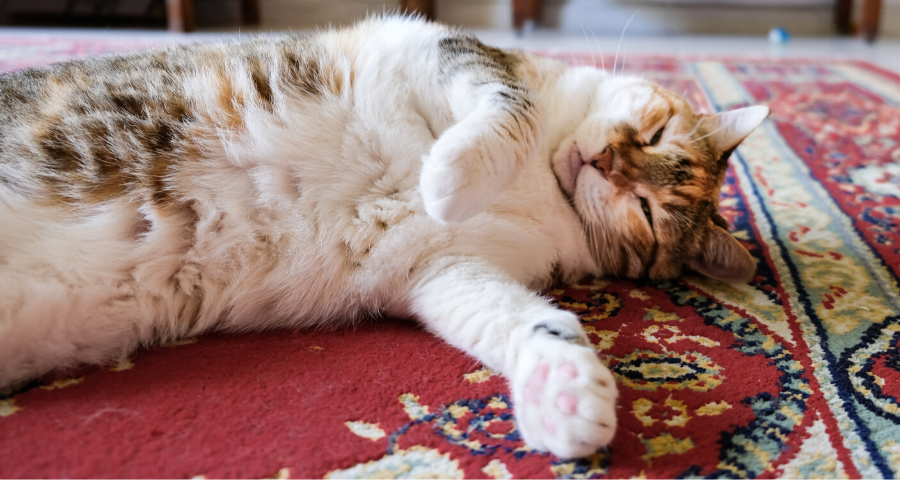
Recurrent “sensitive stomachs”
Signs of poor digestive health in your dog or cat can be uncomfortable for your pet and be a cause of concern for you. Some owners write these signs off as a ‘sensitive stomach’, and either tolerate the symptoms – feeling as though that’s normal for their pet, or try various different diets in the hope that this may help settle their pet’s tummy issues. But when do recurrent vomiting and/or diarrhoea signs warrant veterinary diagnosis and treatment?
What symptoms can occur with poor digestive health?
Poor digestive health can cause symptoms, such as:
- Vomiting
- Abnormal stools – diarrhoea, foul-smelling stools, or stools with blood or mucus
- Straining to pass stools, which may come out as small “blobs” of soft material
- Excessive flatulence
- Poor or picky appetite
- Weight loss or poor growth in young animals
What can cause intermittent tummy upsets?
Symptoms of an upset stomach can be caused by various problems affecting the gut itself. These can include:
- Chronic gut infections, such as giardia or worms
- Food responsive gut issues (e.g. food allergies)
- Bacterial imbalances in the gut
- Inflammatory bowel disease
- Gut tumours
Signs of vomiting and/or diarrhoea can also be caused by other common illnesses around the body that can cause nausea, such as:
- Kidney disease
- Hormonal imbalances (e.g. hyperthyroidism)
- Liver disease
- Pancreatic inflammation or insufficiency
How can we diagnose what is causing a pet’s upset tummy?
If your pet suffers recurrent bouts of vomiting or abnormal stools, or if they seem very unwell during an upset tummy episode, it’s important to book an appointment with one of our vets for further assessment, because as you can see above, there are many potential causes!
If your pet is generally well, and in good condition, we may perform a few simple faecal tests to rule out infectious causes, such as worms or giardia. Then, we may start prescription veterinary diet trials, beginning with a highly digestible diet with altered levels of fibre for gut bacteria health. We may also suggest a probiotic for your pet, and other medications to manage vomiting or diarrhoea symptoms.
If your pet is more significantly unwell (e.g. losing weight, having severe vomiting or diarrhoea, or becoming lethargic), or not responding to the simple therapy above, then we are likely to suggest further testing. This can include blood tests, abdominal imaging (e.g. ultrasound) and sometimes surgical biopsies of the gut. We may also start your pet on a strict hypoallergenic dietary trial – this helps settle symptoms in pets who have allergies to certain proteins in some foods.
If testing shows that your animal has significant gut bacteria imbalances or inflammatory bowel disease, they may need more long-term medical treatment. This can include long courses of certain antibiotics or sometimes steroid anti-inflammatories.
Gut issues can be complicated, so it may take a variety of diagnostic tests and several treatment trials to diagnose your pet’s issue and find what therapy works best for them. However, once we do, your pet’s symptoms will be relieved, and they may surprise you by being a lot happier and more sprightly again!
So, if your pet shows poor digestive health signs, it’s best to book them in for an appointment. Vomiting, flatulence and abnormal stools aren’t nice – for anyone!



